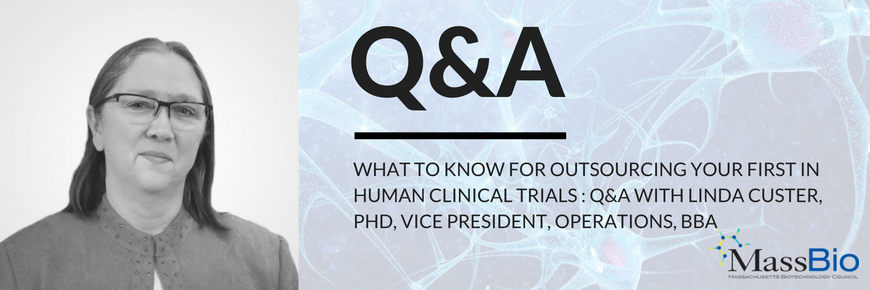
At what point should a start-up engage with a partner for First in Human (FIH) clinical trials?
Consider partner engagement while conceiving what nonclinical and manufacturing evidence you will put before regulators for the first time. What are your core competencies and who are your core internal team members, and how will you support, supplement, and expand them with partner resources?
Engaging a partner as you prepare to become regulated will give your external team as much shared information and shared experiences as possible. For example, early choices in protocol development and revision due to regulatory feedback may inform investigator and site selection and monitoring plan development. You can start small, and easily add partner team members on demand with as little friction as possible.
What are some of the biggest challenges for start-ups involved in First in Human (FIH) clinical trials?
The classic challenge is moving from an unregulated environment to a regulated one. When should studies be conducted using good laboratory practices? What vendors do I need to qualify, and how early? When do I need to implement a full quality system?
In parallel, there’s the shift that naturally takes place from a culture that supports scientists and engineers inventing and testing things in the lab who are attuned to novelty, to a culture that adds in regulatory specialists and clinical researchers who embrace rigor and control.
Ensuring that risk-based project management is fully integrated with goal-based project management can be a big success factor. For example, a thorough prospective review of patient assessments and clinical site performance measures is important to determine what should be tracked so positive or negative signals are found early.
What’s the most important piece of advice you would give a start-up that is entering the clinic?
Overcommunicate and overplan. Don’t make decisions based on assumptions you haven’t verified, or at least make decisions on the best information available at the time. Make sure sponsor staff, CRO staff, and site staff know more about the product and trial than you think they need to. Ask questions all the time and empower people to speak up and participate when they have identified a problem or possible improvement. Stay close to people and to data. Be curious.
To hear from Linda directly, register for MassBio's upcoming forum, “The Startup Company’s Survival Guide to Outsourcing a First in Human Clinical Trial,” on June 20th.
Linda Custer is the Vice President of Operations at BBA. She is the leader of the Clinical Operations team consisting of Clinical Research, Clinical Project Management, and Safety groups. Linda brings nearly 30 years of industry experience to the executive team with 14 years in clinical operations and 16 years in process development, primarily with small biotech companies. Her experience includes development of biomedical devices, diagnostic monoclonal antibodies, small molecule drugs, and cell and gene therapy, including neurology, oncology, gastroenterology, immunology, endocrinology, and nephrology. Her most recent role was Senior Director of Clinical Operations with Tarveda Therapeutics where she led clinical research and development for the lead novel targeted oncology drug. Linda holds Bachelor of Science degrees in both Chemical Engineering and Life Science from the Massachusetts Institute of Technology and a PhD in Chemical Engineering from the University of California, Berkeley.